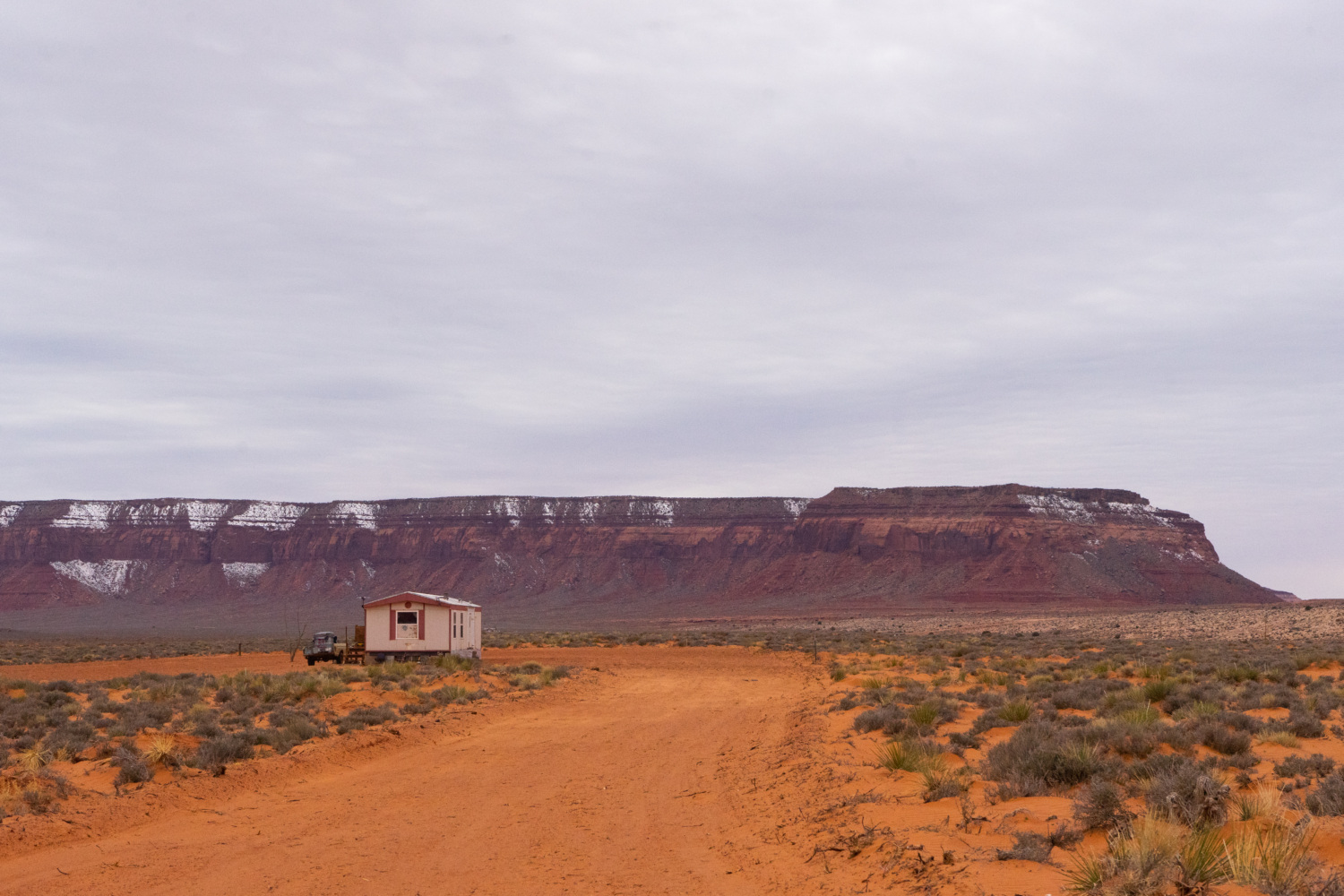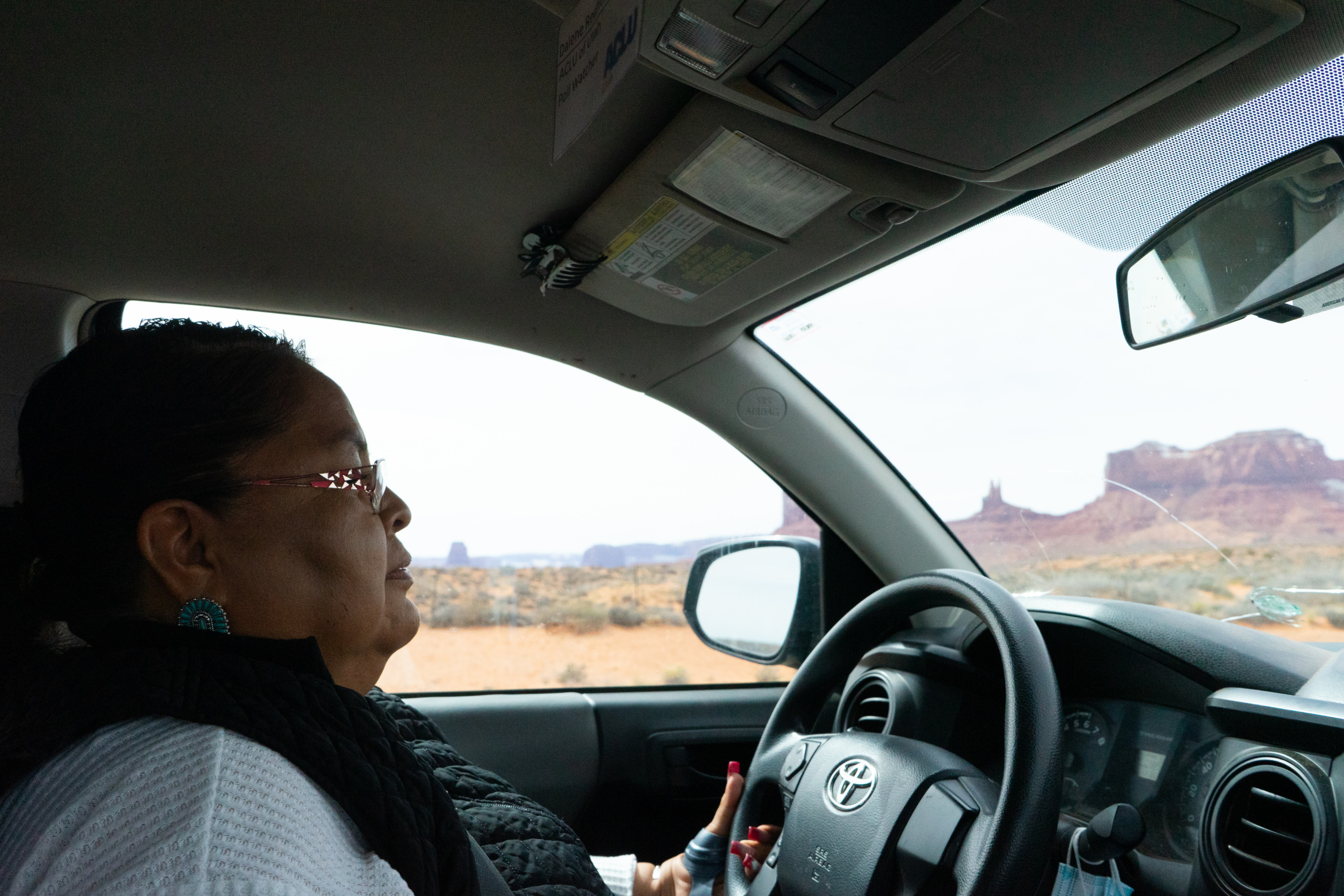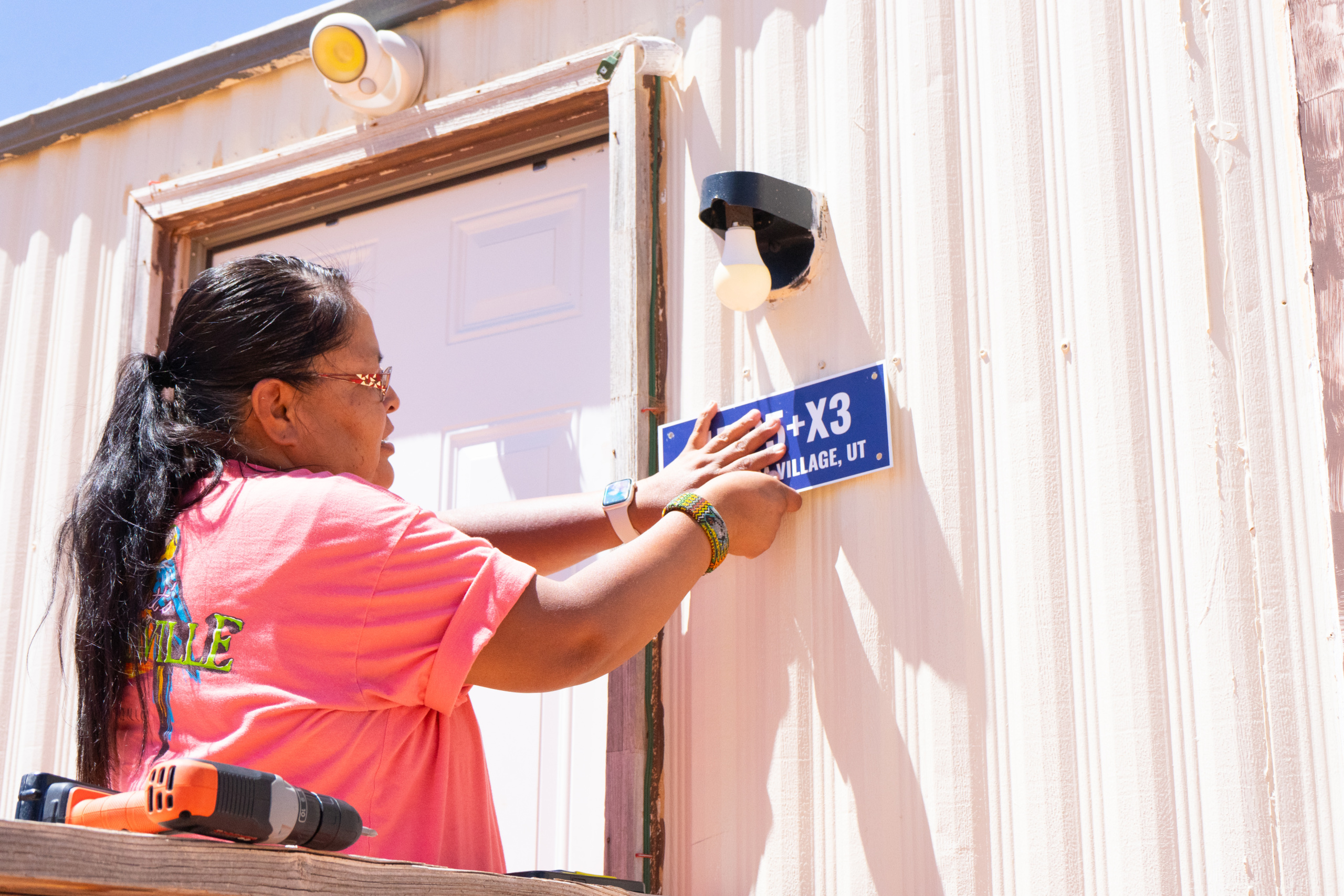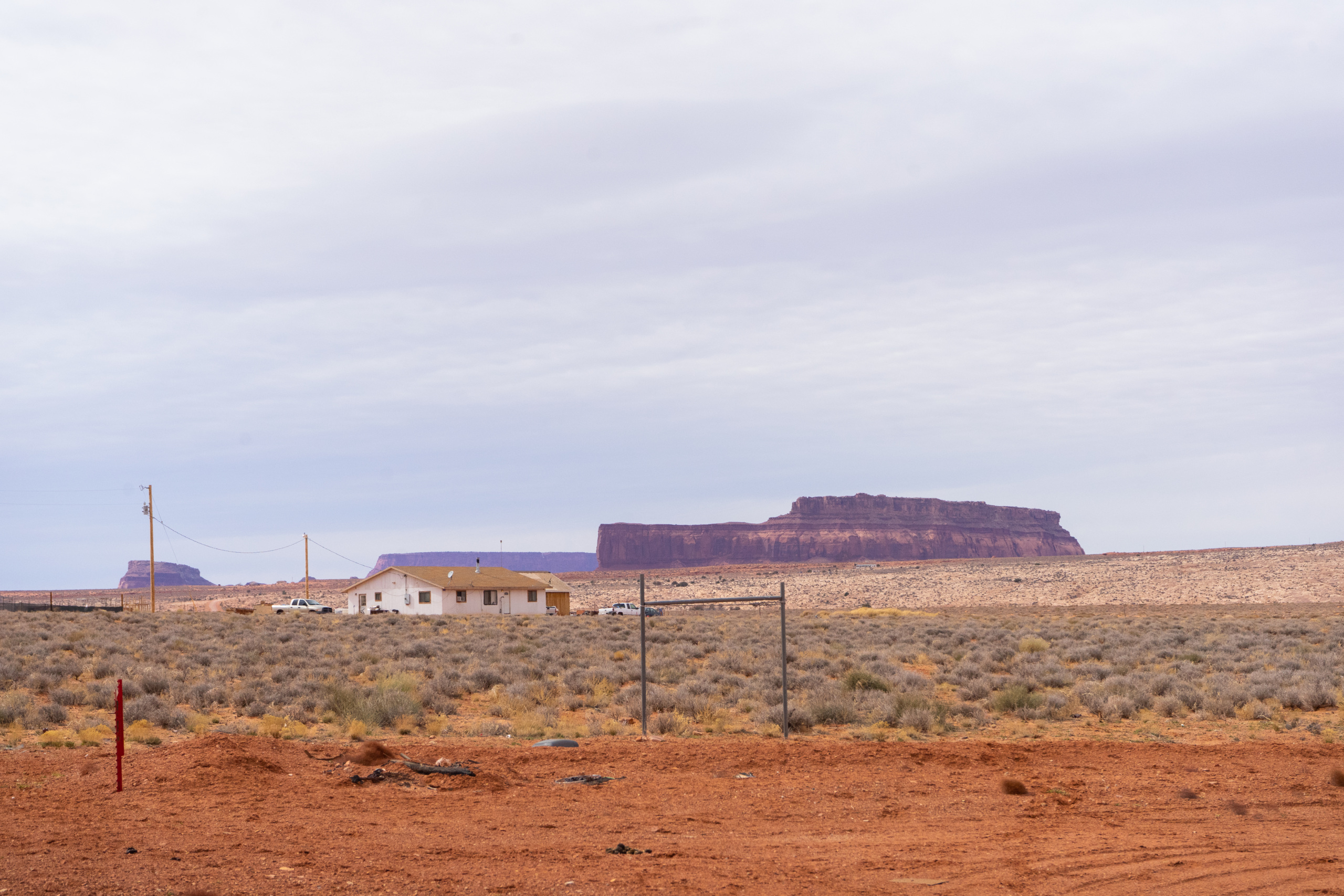LCV: More Than an Address: Mapping Utah’s Navajo Nation

Read Here: https://www.lcv.org/media-center/more-than-an-address-mapping-utahs-navajo-nation/
How the Rural Utah Project is Helping to Ensure More Indigenous Voters can Access Emergency Services, Google Maps, and their Democratic Rights
Imagine not having an address for your home. How would emergency services reach you quickly in moments when every second is critical? How would you or your family receive home care or social services? How would you register to vote and make your voice heard in elections?
This is the reality for many Indigenous communities in this country who continue to be excluded from having an address for their homes. This was the reality for nearly all the 2,900 homes in Utah’s Navajo Nation — from the Colorado state line all the way down to Navajo Mountain — until Daylene Redhorse and the Rural Utah Project (RUP) made it their mission to map out and identify the addresses of these homes. These addresses help ensure that more Indigenous voters can access emergency services and their democratic rights.

Since the project began in 2019, Daylene has worked with RUP as an Addressing Specialist, going door to door within her community, traveling to the furthest corners of the state and across challenging terrain to ensure every household in Navajo Nation knows their Google PlusCode address — which are now displayed on a sign outside homes for easy identification. Not only did individually knocking on doors across vast landscapes take time, Covid slowed the process. However, RUP pivoted, and met eager community members where they were with social-distanced sign pickups. At the end of 2023, Daylene placed the last sign on the last house that needed to be addressed in Utah’s Navajo Nation. Now, you can plug any house in the Nation into your phone or an emergency dispatch and get there, just like most of us do every day without a second thought.

This work is extremely personal to Daylene, whose mother suffered from a stroke at her home and emergency services were unable to identify their location. While Daylene’s family was able to drive her mother to the hospital located an hour away, they lost precious moments attempting to communicate their location to dispatch.
Daylene says, “Where I live is on the highest butte, and maybe three or four times I’ve seen smoke and a fire truck trying to get to this certain road to the location…but by the time they get down there, the house has burnt down. I know with this addressing, it will shorten the response time for the emergency medical teams and fire departments. We have had the EMS teams and transport teams tell us that it’s very helpful to find and get to a location.”
These addresses are also critical for community members to receive life-changing services. Daylene heard many of these accounts first-hand. “We have some people who need dialysis. A lot of the patients would say, ‘you know, I am tired of coming [to the clinic] every day, every other day.’ Shortly after we finished our pilot section of addresses, a guy who lived down the road from me got home dialysis. It was just wonderful to see the solutions being delivered to him.”
While addresses are critical to the health and safety of a community, they are also critical to having a voice in our democracy. Without an address, members of the Navajo community are often unable to register to vote in the districts where they live, and are unable to elect officials who equitably represent their communities.
As Big Polluters and corporations continue to influence legislation and policies to make it harder to vote and to allow rampant drilling, mining, and pollution on Indigenous and federal lands, it is more important than ever for every voter in every community to have easy access to the ballot box. Daylene notes that, “a lot of people say, ‘my vote don’t matter, nobody counts.’ But that first year after I went out, we had 1,600 new voters. There was an article [written] and that gave me proof to go back and tell people, ‘look, they did count you new voters!’.” And that’s something that really excites Daylene, as civic engagement goes all the way back to her childhood.
Daylene credits her passion to bridge barriers to the electoral process in her community to the advocacy of her parents. “My parents were very involved in the elections. They’ve taken people to the polls, and my mom would translate. They used to sit up all evening to watch the results of the elections on our little black and white TV. Now, I visit elders and let them know what we’re doing — give them updates. You start seeing them come in when you’re monitoring the polls, and some of the people I have visited and have talked to walk in and cast their vote — that’s very rewarding to me.”
